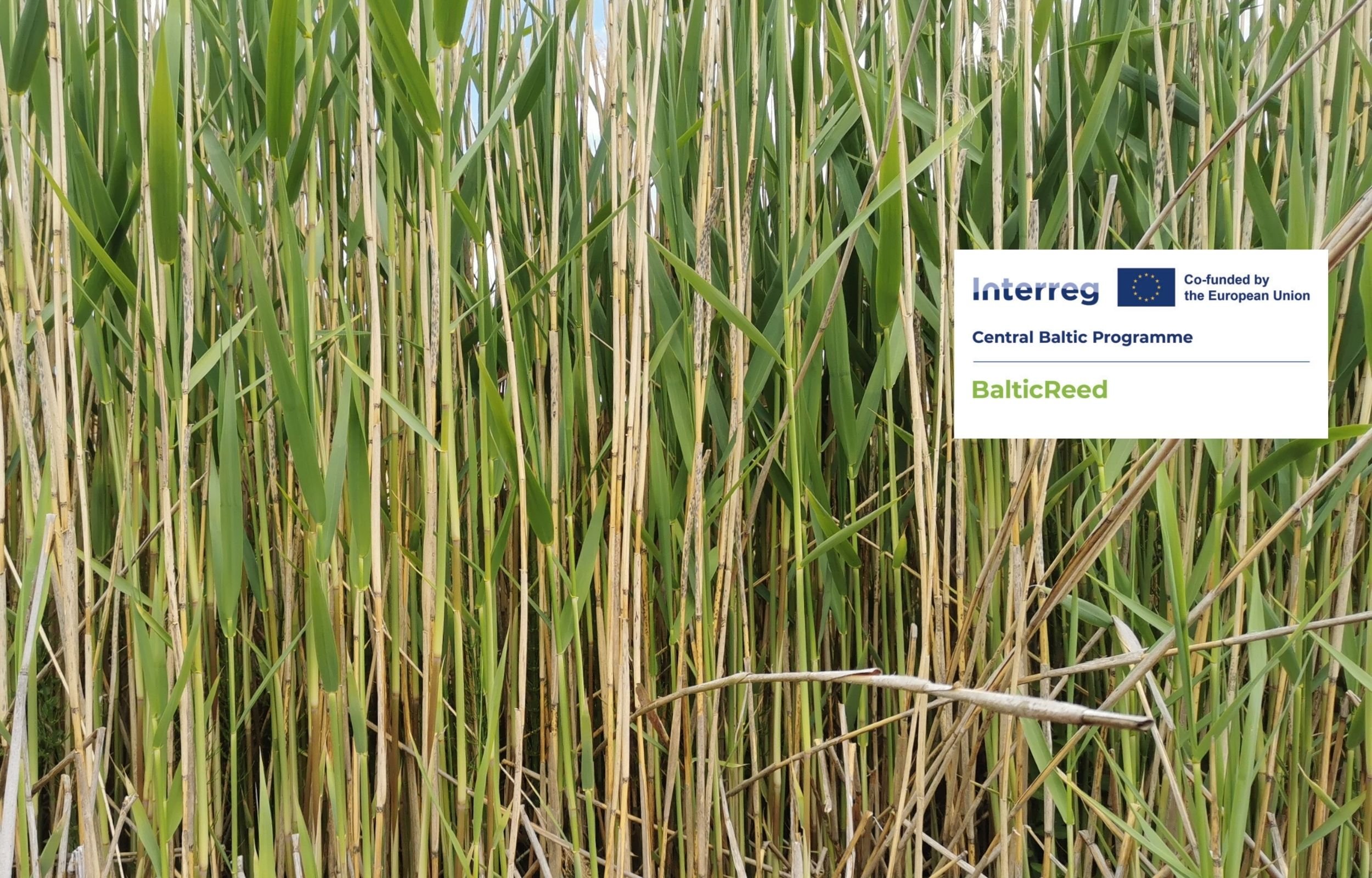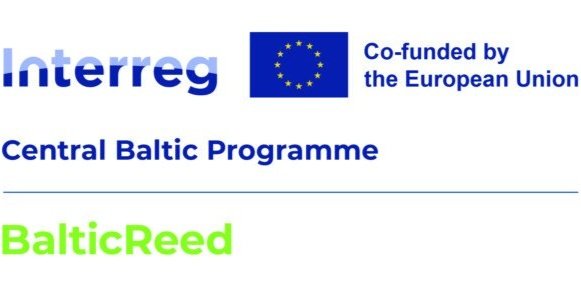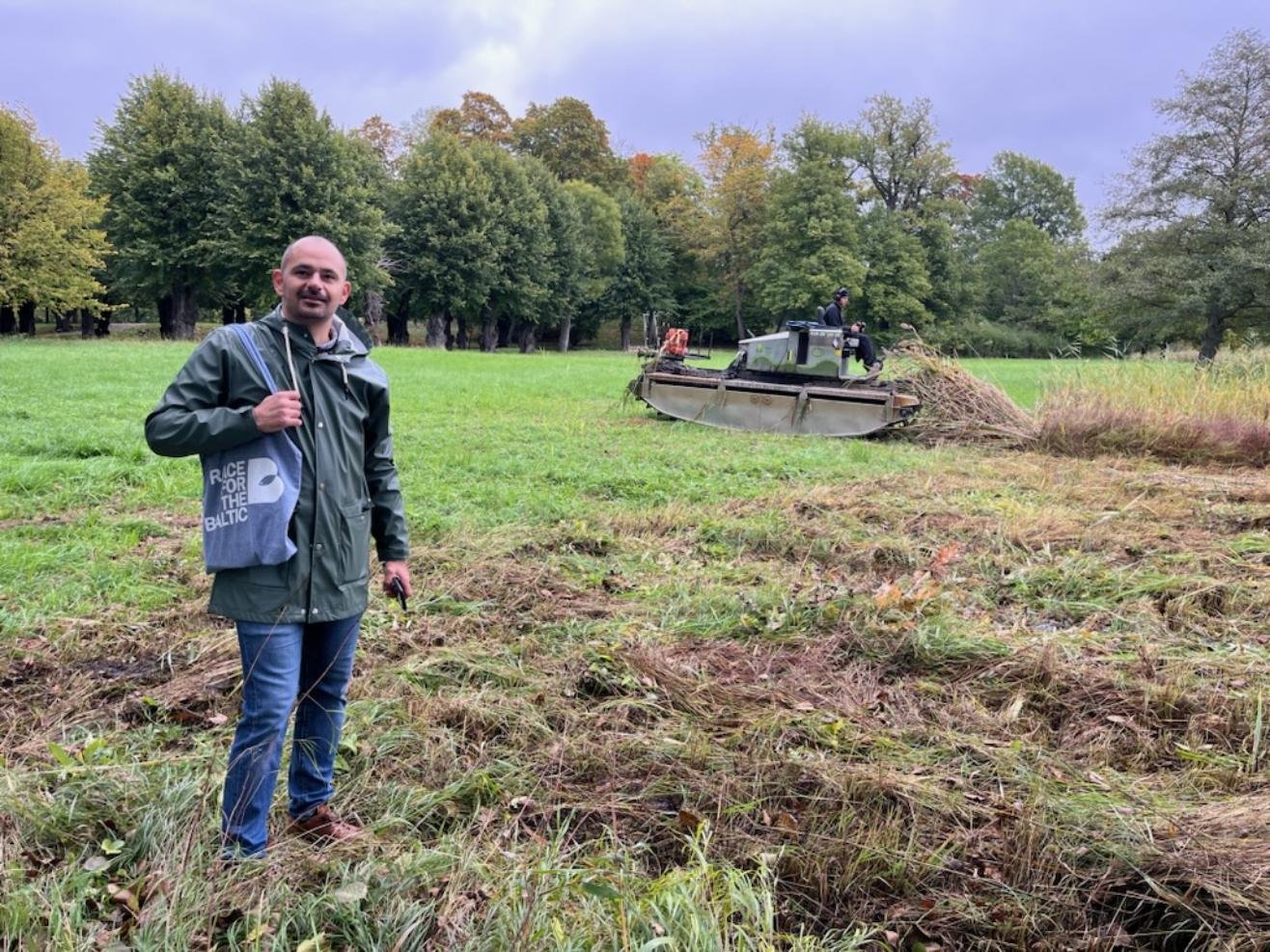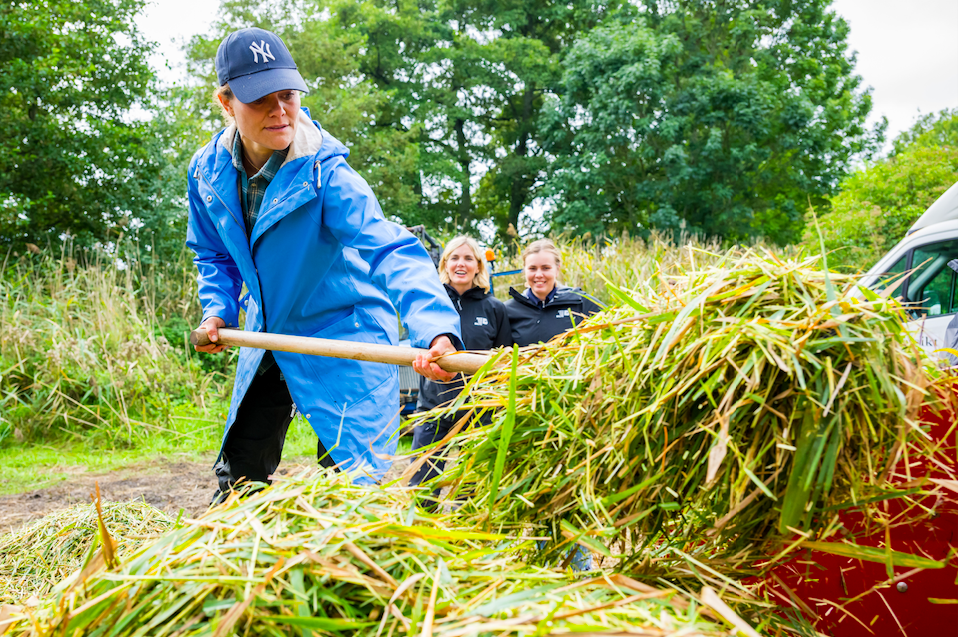
BalticReed
A project focusing on reed harvest and nutrient circulation
Over the past decades, reed beds have expanded dramatically along the Baltic Sea’s coast. This overgrowth has increased the necessity of finding innovative solutions for reed utilisation. The BalticReed project addresses this by harvesting dense reed beds to circulate nutrients from the Baltic Sea, thereby improving water quality and restoring coastal habitats. Each hectare of reed bed harvested removes approximately 5-10 kg of phosphorus and 50-100 kg of nitrogen, significantly reducing nutrient levels in coastal waters.
Well-planned reed harvesting not only enhances the condition and biodiversity of overgrown coastal areas but also considers the preservation of essential nesting and hiding places for birds, fish, and insect species. The harvested reed biomass is recycled and repurposed for land use. In collaboration with commercial stakeholders, the project will identify bottlenecks and opportunities for the commercialisation of reed-based products. Pilots for these products and value chains will be conducted, ensuring that reed harvesting is legislatively and ecologically sustainable. Through these efforts the project will achieve concrete nutrient reductions and habitat improvements in Finland, Åland, and Sweden.
Project Activities
• Coordinate and implement reed harvest operations in cooperation with target groups
• Reed based value-chain development
• Implement harvesting pilots in cooperation with target groups
• Development of sustainability guidance for reed harvest
Expected Results
The project’s expected results include nutrient removal, enhanced biodiversity, and improved recreational use of seashores. By developing sustainable, market-driven reed-based value chains, BalticReed aims to boost reed biomass utilisation, promote harvesting entrepreneurship, and engage various stakeholders for long-term environmental benefits.
Status
Active
Project Goals
The primary goal is to remove nutrients from eutrophicated coastal waters by harvesting reed beds and promoting reed utilisation.
Funding
The project is funded (2023-2026) by the EU’s INTERREG Central Baltic programme, which finances cross-border cooperation projects to improve the state of coastal and marine environment.
Project Partners
The partners in the project are John Nurminen Foundation, the ELY Centre for Southwest Finland, Arcada University of Applied Sciences, the Government of Åland, and the County Administrative Board of Östergötland.
Sustainable Development Goals
The project adresses SDG 9 (industry, innovation and infrastructure), SDG 14 (life below water) and SDG 17 (partnership for the goals)
Do you have any ideas within reed utilisation or business development?
Contact our Business Manager:
Anil Ramel Singh
anil(at)raceforthebaltic.com
Related news





















